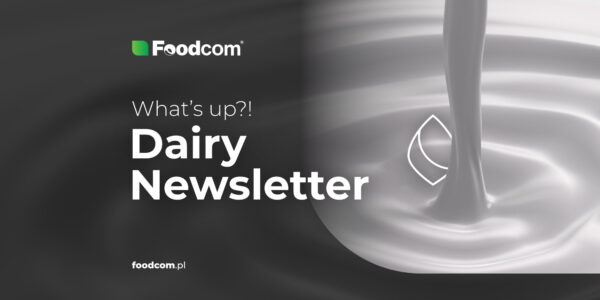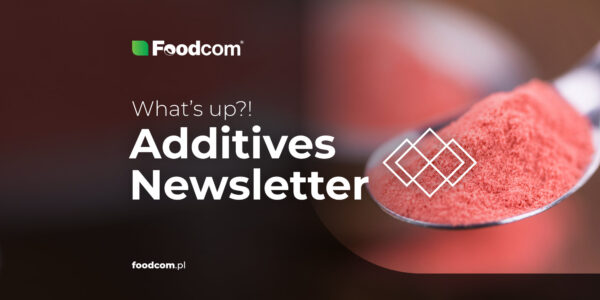- Dynamic growth of the 200-mesh creatine and sucralose market – increasing demand and challenges in the supply chain.
- Choline chloride under pressure – EU considers anti-dumping duties on Chinese imports.
- Geopolitical tensions and logistical disruptions affect raw material availability and prices.
- EU invests 111.7 million euros in green hydrogen production in Greece.
Welcome back to our newsletter!
In this issue, we delve into some of the most exciting trends and developments in the world of dietary supplements, food ingredients and the chemical industry. From the booming 200 Mesh creatine market to the rapid growth of sucralose, we provide insights to keep you ahead of the competition. Also find out how geopolitical tensions and supply chain disruptions are transforming industries around the world, and how groundbreaking projects such as green hydrogen production in Greece and innovative recycling initiatives in South Korea are leading to a more sustainable future.
Don’t miss it – read on to find out all the details and be sure to check out the link to our new e-commerce site at the end of the newsletter. You won’t want to miss it!
Let’s take a look at what else is happening in the market!
Creatine 200 Mesh
Creatine200 mesh is one of the most popular dietary supplements on the market, with growing demand in both the sports and food industries. In 2023, the global creatine market was worth $500 million, and forecasts indicate a 6% annual growth rate until 2030. More than 80% of global production comes from China, making this market vulnerable to geopolitical changes and supply chain disruptions. Over the past two years, creatine prices have increased by an average of 15%, mainly due to increases in raw material and transport costs. Despite this, the product remains widely available, although there are periodic supply difficulties. Distributors are trying to stabilise stocks, but price fluctuations can persist, especially during periods of increased demand.
Choline chloride 70%
The European market for choline chloride faces significant challenges. The European Union has initiated anti-dumping proceedings against imports from China, which could lead to tariffs and further price increases. At the same time, the feed industry is facing a crisis (‘feed shock’), which is causing problems with raw material availability and increased production costs. The situation is exacerbated by delays in deliveries from China due to the New Year celebrations, which further limits product availability. Experts warn that prices could continue to rise in the coming months, affecting the entire agri-food sector.
Sucralose
The sucralose market is experiencing rapid growth, reaching $4.46bn in 2025, up 8.9% year-on-year. The main factors driving this trend are consumers’ growing health consciousness and their preference for low-calorie sugar substitutes. Sucralose, which is approximately 600 times sweeter than sucrose, is widely used in the food industry, especially in diet and diabetic products. In addition, its use in the pharmaceutical and nutraceutical industries is contributing to further market growth. Sucralose is expected to reach a market value of $6.1 billion by 2029, confirming its growing role in the global food and pharmaceutical industries.
News
EU approves €111.7m for Greek renewable hydrogen project
The European Commission has approved a €111.7m state aid package from Greece to support renewable hydrogen production. The investment will support Motor Oil Hellas in its ‘Green Hydrogen’ project, which includes the installation of a 50 MW electrolyser powered solely by renewable energy. The aim of the project is to decarbonise the Greek transport and industrial sector by producing renewable hydrogen to power vehicles and industrial processes, such as the production of sustainable fuels.
The funding comes entirely from the Reconstruction and Resilience Fund (RRF) and is in line with the Greek Economic Recovery Plan. The Commission considered this support necessary and proportionate to achieve the EU’s climate goals, in line with the REPowerEU plan to reduce greenhouse gas emissions and accelerate the transition to renewable energy. The project also aims to stimulate the development of the hydrogen market in Greece, create new jobs and support the transition to a climate-neutral economy.
Azoty Group negotiates sale of Police Polymers project to Orlen
Azoty Group is in advanced talks with Orlen over the sale of all or part of its stake in the Polimery Police project. The project involves the construction of a petrochemical complex in Police, including propylene and polypropylene production facilities and a transhipment and storage terminal. Negotiations are to determine the terms of a potential transaction and are expected to be completed by 31 March 2025.
The decision to consider a potential sale stems from the difficult financial situation of Grupa Azoty, which is struggling with high debt, partly caused by the cost of the Polymers Police project. The value of the investment has increased from the originally planned PLN 2.7 billion to more than PLN 7.2 billion. The sale of shares in the project is aimed at improving the company’s liquidity and continuing the restructuring.
Orlen will buy Polimery Police?
Azoty Group is in talks to sell the petrochemical project, whose costs have risen from PLN 2.7bn to PLN 7.2bn. The deal could ease financial strains, with a decision expected by March 2025! Poland #Petrochemicals
SK Chemicals builds innovative plastics recycling centre in South Korea
South Korean company SK Chemicals has announced plans to build a state-of-the-art plastics recycling centre in the city of Ulsan. Named the Recycle Innovation Center (RIC), the new facility will focus on converting plastic waste – such as bottles, films and car parts – into high-quality raw materials for reuse. Using state-of-the-art depolymerisation technology, the centre will be the first of its kind in Korea and is scheduled to open in 2026.
The aim of the investment is to develop environmentally friendly solutions for various industries such as automotive, electronics and apparel. SK Chemicals wants to accelerate the plastics industry’s transformation towards sustainability. The company also intends to work with other sectors to adapt recycling technologies to their needs. SK Chemicals CEO Ahn Jae-hyun emphasises that the centre will play a key role in building a circular economy and reducing plastic waste.
By 2026, a new plastics recycling centre will open in Ulsan, using depolymerisation technology to turn waste into raw materials. A big step towards sustainability!

![Add-ons on the move: Key factors shaping the market in February 2025. [67th Edition ADDITIVES Newsletter] Add-ons on the move: Key factors shaping the market in February 2025. [67th Edition ADDITIVES Newsletter]](https://foodcom.pl/wp-content/uploads/2024/06/Foodcom_SA_Additives_Newsletter_Amino_Acids-1520x760.jpg)

![Chemical industry news from Foodcom S.A. [October 2024] Chemical industry news from Foodcom S.A. [October 2024]](https://foodcom.pl/wp-content/uploads/2024/09/industrial-biuletyn-600x300.png)



